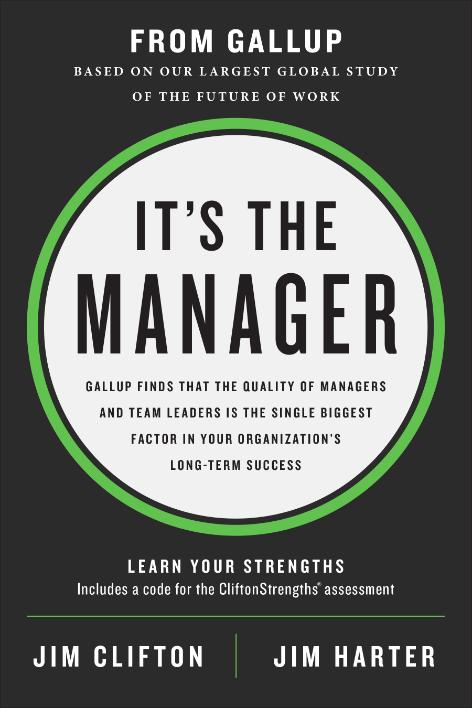Story Highlights
- Culture can be hard to define, but it shapes an organization
- Only 41% of employees say they know what makes their workplace unique
- Alignment on "how things get done around here" starts with managers
Few things are as important -- and sometimes as difficult to grasp -- as an organization's culture.
Senior leaders want to know what their culture is so they can use it to influence behaviors. Employees want to know what the culture is to determine whether they will fit in. Customers want to know what to expect when they interact with employees. We all want to know where we came from, who we are and where we're going.
So you'd better define what your culture is.
Not surprisingly, there are probably as many definitions of culture as there are people trying to define it. Some take a descriptive approach, defining culture in terms of its essential features -- such as being "innovative," "performance-based" or "traditional."
Others take a dynamic view, defining culture in terms of the interplay among different forces in their organization.
Both of these approaches, and many workplace experts and practitioners, view culture as a sort of invisible hand that guides and shapes an organization.
We know there are endless definitions of the word itself, but Gallup believes that organizational culture begins with "how we do things around here."
When considering how your people "get things done around here," you need to give the most thought to the most important role in your organization: the manager. Your culture lives or dies day to day through your managers.
Conduits for Culture
Your managers need to understand your culture down to the bone, because they have more influence on your company's culture than anyone else does. They have direct access to the employees who carry out the day-to-day work of your company and fulfill its mission. Or not.
It all comes down to the manager. Managers account for up to 70% of your employees' engagement. And yes, engagement leads to better performance.
But Gallup research reveals that less than half of U.S. employees (41%) strongly agree that they know what their organization stands for and what makes it different from its competitors. That's a problem. An organization's performance improves when its employees understand what differentiates its brand -- but most managers must not be translating "how we do things around here" for their employees.
Which is not to say those employees have no work culture. When the absence of a clear, unifying culture exists, microcultures can emerge. The microcultures may or may not be congruent with the desired outcomes of the business. But either way, they're no substitute for a cohesive culture that enhances performance, accomplishes your mission and fulfills your purpose.
Getting the Culture You Want
Once you've identified the desired culture that fits your organization, how do you know if your managers are supporting it? Ask them these questions:
- How well do our purpose, brand and culture align?
- How clear is our purpose to our employees, and are they clear on how it impacts our customers?
- How do you and your team show that you're committed to supporting our culture?
The answers to these three questions will give you a sense as to whether managers are living out the desired culture -- in short, whether they're supporting your company's ideal state.
And if you don't hear what you expected to hear, fix it quickly. Culture has a direct, measurable impact on performance.
The Quick Fix
Ensure managers have been trained on the mission and purpose of your organization. With M&As taking place, new hires starting and every other initiative competing for time, it is easy to lose sight of how a manager education program can help reinforce the company culture.
Hire the most talented managers. The most important decisions you make in your career involve recruiting and selecting your managers. When you hire managers based on their abilities in certain dimensions of talent, like motivation, you can rest assured that your talented managers will not only carry out the mission of the company but also provide an opportunity for employees to know their role within that mission. One in three employees worldwide strongly agree with the statement "The mission or purpose of my organization makes me feel my job is important." By doubling that ratio, business units have realized a 34% reduction in absenteeism, a 42% drop in safety incidents and a 19% improvement in quality.
So while few things are as hard to grasp as company culture, few things are more important to leaders than understanding -- and perhaps fixing -- exactly "how things get done around here."
Build an extraordinary culture with managers who inspire their people:
- Learn how to connect your employees to the greater vision with Gallup's free culture webcasts.
- Download our perspective paper Building a Culture That Drives Performance.
- Empower your managers with access to on-demand learning, surveys and management insights on Gallup Access.
- Partner with Gallup to assess your current culture and define your ideal state.




